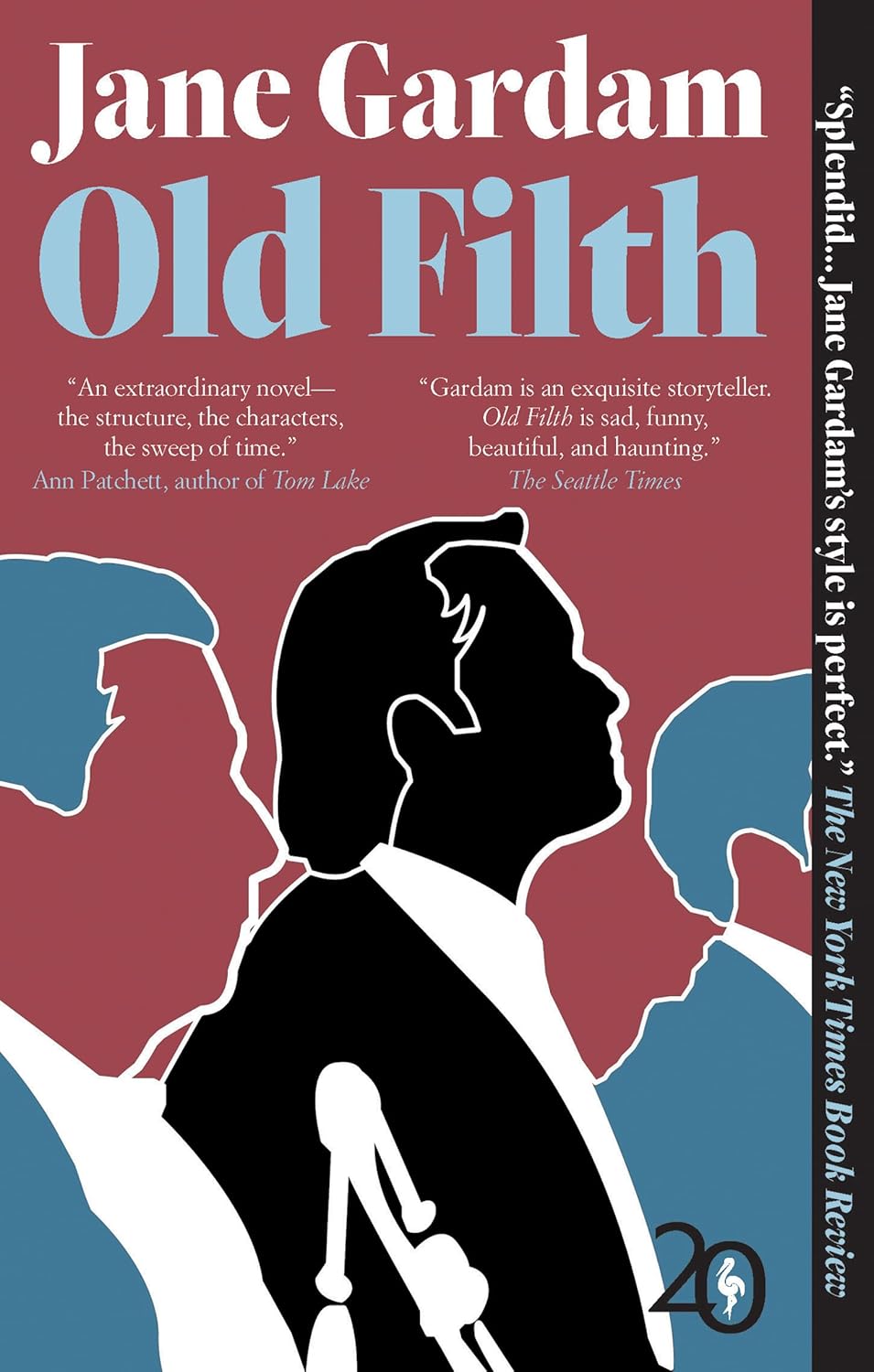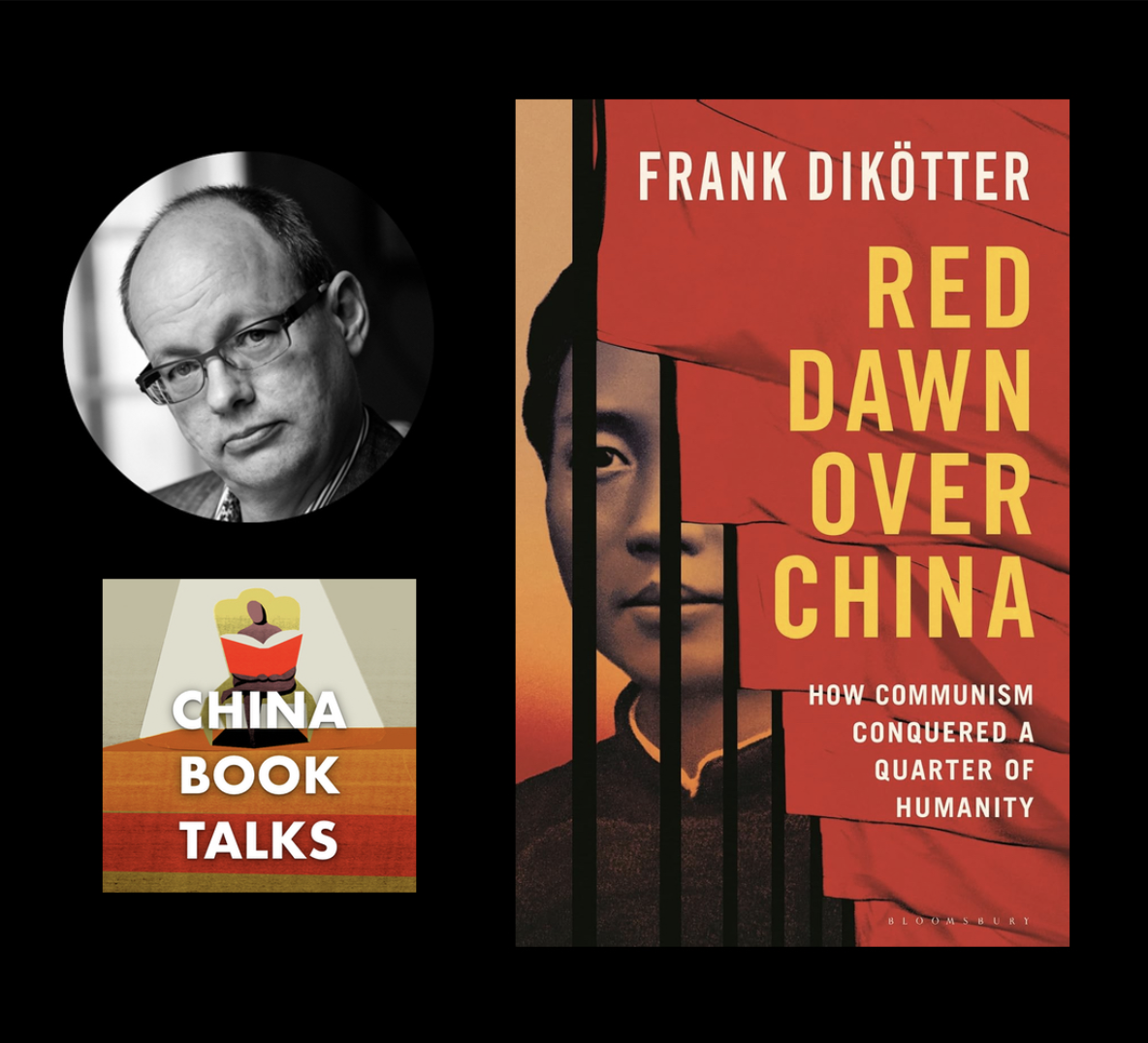Sign up for our newsletter to be notified of new posts!
The death in April of the British novelist Jane Gardam, at a very respectable 96 years old, has brought her literary legacy to the attention of new readers. Gardam was prolific — authoring over half a dozen novels, ten short story collections, and more than a dozen children’s books. Her work was humorous and full of sharp insight into British and colonial society in the second half of the twentieth century. She regularly reviewed for The Telegraph and The Spectator, as well as writing often for BBC Radio. Perhaps her best-known work was the Old Filth trilogy: Old Filth (2004), The Man in the Wooden Hat (2009) and Last Friends (2013). In 2015, a BBC survey voted Old Filth among the 100 greatest British novels.
The trilogy tracks the lives in Hong Kong of upper-class British expat judge Edward Feathers, his frustrated wife Elizabeth or “Betty,” and his working-class rival at the Bar, Terry Veneering, from post-war colonial Hong Kong to the 1997 handover and a cranky retirement in southern England. The first novel, told from Feather’s perspective, was a bestseller, but readers felt there was more to know about both Betty and Veneering. So Gardam adopted a Rashōmon approach, with The Man in the Wooden Hat retelling the story from Betty’s point of view, and Last Friends completing the trilogy through the eyes of Veneering, the son of a Russian émigré circus performer settled in northern England who’d married a local girl.
To those who knew Hong Kong in the second half of the 20th century, Edward “Old Filth” Feathers — Raj orphan, public schoolboy, a Christ Church Oxford man — was an all-too familiar character to be encountered in the somnambulant clubs of the British colony before 1997. He is the star barrister who becomes an Establishment figure. He joins the right clubs and dines at the Inner Temple of the courts when in London. Filth likes the money lawyering brings in, but also the social position, his spot at the Hong Kong Club bar, and the best table at the Repulse Bay Hotel. It’s accession to the British Establishment that really motivates him. Filth and Betty ascend The Peak in 1947, lair of the privileged British colonial classes. He is always perfectly presented, never a sinner or a philanderer, nor (the worst of English middle-class vices) ever “common.”
In Gardam’s fiction, Feathers is said to have invented the term “FILTH” (Failed in London Try Hong Kong). In the depressed years immediately after WWII, he adopted the sobriquet as an act of typically English self-deprecation. He was of course succeeding in Hong Kong and, despite his youth when he first settles in the colony, there is always something of the Old Fogey about him — his manners, his turns of speech, his clothes, and his loyalty to pre-war notions of Empire and Englishness.
Initially, FILTH wasn’t really an insult, just a circumvention tactic for those moving to Hong Kong to escape a recession (Feathers) or good old-fashioned English class prejudice (Veneering). Later, in the 1980s and 90s, FILTH morphed into an insult applied to the legions of uninspiring English public-school types who turned up in the colony. They waved the old school tie, pulled on a rugby jersey, or flouted daddy’s connections to secure a decent salary and a desk to sleep off their hangovers at one or other venerable and compliant British bank. Gardam added the “old” as in “old boy” or “old chap,” a middle-class affectation, and because Edward Feathers becomes an old man, a fossil, a relic of the Empire, the last of his kind.
Seemingly more from a sense of protocol than emotion, Feathers proposes to Betty in Hong Kong. A man rising through the legal ranks, heading for a judgeship, should have a wife. She is China-born of British parents, and was interned in a Japanese camp for enemy civilians in Shanghai for several years before being repatriated to England and recruited as a Bletchley Park codebreaker. With China turning Red and Shanghai nothing but an unobtainable memory, Betty settles for Hong Kong. Better there with the familiar smells, languages and climate than bleak, dank, bombed-out England. Her husband earns big fees at the Hong Kong Bar and has a suite at the Peninsula Hotel. By contrast, Betty is broke and not getting any younger:
She was staying in a shabby hotel in a back street, and street music playing against the racket of mahjong players on every open stone balcony. The overhead fan was limp and fly-spotted. On the beds were 1920s scarlet satin counterpanes with ugly yellow flowers done in stem stitch. They must have survived the war. Old wooden shutters clattered. There was the smell of the rotten lilies heaped in a yard below.
In marriage, Feathers offers her a chance at a “normal” life: financial security, middle class stability in a post-war world emerging from chaos and conflict. Betty works hard to be the loyal wife, a tireless slave to her charitable endeavours with Chinese orphans in the Hong Kong slums or her English garden in their suburban retirement.
Veneering, meanwhile, spends his National Service in the Far East just after the war and opts to settle in Hong Kong. His choice to pick up some Mandarin and a Singaporean-Chinese wife of extraordinary beauty marks him forever with the snobs who do not deign to speak the lingo or marry the local girls. Compounded by his strange Russian roots and his unabashed “Northernness” (hailing from the solidly working class industrial town of Teeside), he is an outsider everywhere. In both the dining rooms of the Inner Temple and the drawing rooms of The Peak, he is described variously as “jumped up,” “caddish” and “gauche.” Yet in Hong Kong, out in the colonies, Veneering can escape the worst of English class snobbery. His clients are Asian, new-moneyed tycoons, and he provides a bridge between them and the colonial justice system. They don’t care what school he went to, who his parents were, they just want to win.
But none of these characters are what they appear. All of them have secrets, and intertwined connections that go to the roots of England, Empire and class.
In Gardam’s fiction, Feathers is said to have invented the term “FILTH” (Failed in London Try Hong Kong).
Jane Gardam’s own life was a mirror of her protagonists’. She married a high-flying Queen’s Counsel who took on Empire cases in Hong Kong and British Malaya where the couple lived for various periods of time. She knew the world of the FILTH and the SOPs (Spoiled Old Colonials). She knew the “Raj orphans,” children born into an empire that was disintegrating, sent home for school, knowing little of their colonial service parents. After WWII, Malaya became Malaysia and Singapore, the treaty ports of China were abandoned, Burma sought its own way, India partitioned. Only Hong Kong remained the British Empire’s last post “out east”.
In the 1980s the Gardams retired to Kent, the “Garden of England”, where many a SOP and FILTH eventually retreated — their Hong Kong pensions healthy, their houses cluttered with lacquerware, calligraphic scrolls and mediocre paintings of junks on Victoria harbour. Their old Kowloon-stitched linen suits saw a brief airing every June and July for a few weeks, their Kowloon Cricket Club tie swapped for an Marylebone Cricket Club one.

There was much ghastliness and ghoulishness among the Raj orphans, SOPs and FILTH for Gardam to observe in Hong Kong. Total reliance on servants meant they never changed their own babies’ nappies, never washed a bedsheet, stitched a hem, cooked a meal or dried a plate. The men spent decades in Hong Kong without touching Chinese food, preferring the sort of English nursery fare served up in the colony’s clubs. A lifetime of sausage and mash with gravy, chicken and leek pie, jam roly-poly pudding, spotted dick, chicken sandwiches. Gardam skewers the export of class prejudices and resentments throughout the Empire — how the middle class obsession with ties and titles, bizarre manners and affected mannerisms bewildered their colonial “subjects.”
Hong Kong’s enervating climate and intriguing foreignness is constantly contrasted to down-at-heel England — train-buffet sandwiches curling at the edges, pea-souper fogs, grimy lodging houses, threadbare demob suits and barely a radiator or a washing machine in the land. Who wouldn’t take the next flight from Croydon Airport to Kai Tak! The post-war reversal of fortunes was dramatic, as supposedly victorious and righteous Britain slid into the three-day week, bin men strikes and power cuts, while the subordinate colonial Hong Kong economy shot skyward. Leaving was a tough proposition, but for Edward and Betty’s generation the return home, to the Motherland, was traditional. To stay on — Empire relics “gone native” — was simply not a consideration for anyone except the eccentric.
Like Bombay-born Rudyard Kipling, Gardam’s protagonist Edward Feathers was sent away from the colonies as a child before the war to live with a couple who boarded children of Empire families living abroad. “Raj Orphans? Raj loonies more like” says his school friend Pat Ingoldby, who has the end of British imperial power nailed: “The Empire is on the wane, draining away.” The war would finish it, except Hong Kong where you could eke out a decent living in the final ruins of British imperial power, away from England’s trade union barons, high taxes and the socialist National Health Service.
Throughout the trilogy there is no longing for a lost Empire, no donning the rose-tinted spectacles.
To a new generation of readers, Gardam may appear altogether too concerned with English social maladies, and with an Empire that has already passed. But her concise storytelling, revelatory plotting and slow-burn character reveals have won readers internationally with each reprinting, as they follow Old Filth, Betty, Veneering and a host of secondary characters through 80 years of their lives.
Where our loyalties lie at the end is unclear. We sympathize with Betty, despite her revealed foibles and dissembling. We cheer on Veneering to champion the underdog. But we also appreciate the decisions Old Filth has made in life. We are given a strong sense of a post-war Hong Kong starting to feel its Chinese identity more strongly as the prospect of the handover to China in 1997 get closer (although the lives of local Hong Kongers barely feature in the novels). And we are left with the eternal expatriate dilemma — what comes next? What will replace the privilege and entitlement when you return home to gas bills and overcrowded trains?
Everyone knows when their time is up. Filth and Betty leave Hong Kong on the eve of the 1997 handover, aware that their world has ended and whatever is coming next doesn’t include them. They settle for a quiet village in rural England, church on Sundays, the BBC, a whisky before bed. There’s no romanticisation, no idealized Hong Kong, just a last desperate gasp of imperial privilege. Throughout the trilogy there is no longing for a lost Empire, no donning the rose-tinted spectacles, no notion that any of it was beneficial to more than a few Brits who saw it as their birthright.
Ironically, perhaps, Jane Gardam was awarded an Order of the British Empire in 2009. ∎

Paul French lived in Shanghai from the 1990s to 2014, running the market research publisher Access Asia. He is the author of Midnight in Peking (2012), a New York Times bestseller, City of Devils (2018) and other titles. His most recent book is Her Lotus Year (2024).



